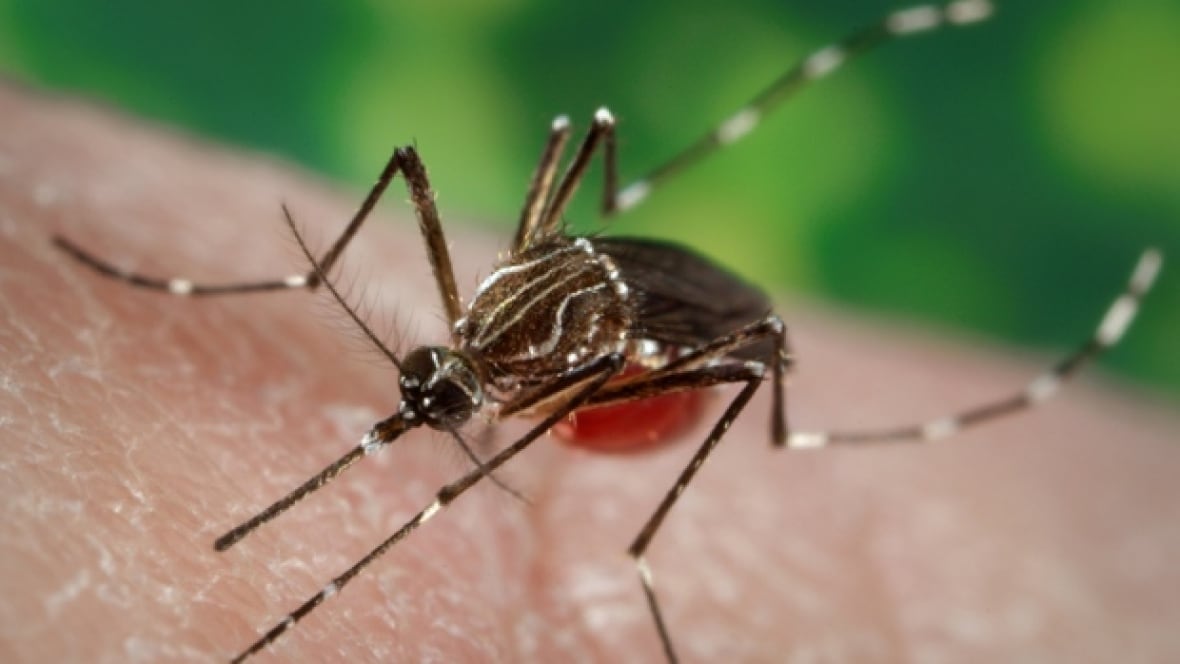Top Stories
Urgent: First Human Case of Eastern Equine Encephalitis in 2025 Confirmed in Hamilton

BREAKING: A confirmed case of Eastern Equine Encephalitis (EEE) has emerged in Hamilton, marking the first human case for 2025. Hamilton Public Health Services announced this urgent development on August 18, 2025, following a laboratory confirmation received just a day prior.
This case involves an adult resident of Hamilton who has no known travel history, raising concerns about local mosquito populations. EEE is a serious viral illness typically transmitted through mosquitoes that have fed on infected wild birds. While many individuals bitten by infected mosquitoes remain asymptomatic, the potential for severe symptoms exists, including inflammation of the brain, which can manifest as sudden headaches, high fever, chills, and vomiting.
Dr. Bart Harvey, associate medical officer of health, emphasized the importance of taking preventive measures against mosquito bites. He stated, “Employing simple preventive measures such as using insect repellent containing DEET or Icaridin, covering up, and removing standing water on your property to prevent mosquito breeding will reduce your risk while you enjoy the outdoors.” While the risk of contracting EEE remains low, the public is advised to stay vigilant, especially as warmer weather encourages mosquito activity.
The announcement comes on the heels of Hamilton’s first EEE case in a horse since 2019, indicating a worrying trend in the region’s vector-borne illnesses. Public health officials are urging residents to remain alert as the risk of infections like EEE and West Nile virus escalates during the summer months.
Authorities note that the risk will diminish significantly after the first heavy frost, which typically curtails mosquito populations. For now, residents are encouraged to take immediate action to safeguard their health.
Stay tuned for further updates as this story develops, and ensure you are protected against mosquito-borne illnesses this season.
-

 Politics4 weeks ago
Politics4 weeks agoSecwepemc First Nation Seeks Aboriginal Title Over Kamloops Area
-

 World5 months ago
World5 months agoScientists Unearth Ancient Antarctic Ice to Unlock Climate Secrets
-

 Entertainment5 months ago
Entertainment5 months agoTrump and McCormick to Announce $70 Billion Energy Investments
-

 Science5 months ago
Science5 months agoFour Astronauts Return to Earth After International Space Station Mission
-

 Lifestyle5 months ago
Lifestyle5 months agoTransLink Launches Food Truck Program to Boost Revenue in Vancouver
-

 Technology3 months ago
Technology3 months agoApple Notes Enhances Functionality with Markdown Support in macOS 26
-

 Lifestyle3 months ago
Lifestyle3 months agoManitoba’s Burger Champion Shines Again Amid Dining Innovations
-

 Top Stories2 months ago
Top Stories2 months agoUrgent Update: Fatal Crash on Highway 99 Claims Life of Pitt Meadows Man
-

 Politics4 months ago
Politics4 months agoUkrainian Tennis Star Elina Svitolina Faces Death Threats Online
-

 Sports5 months ago
Sports5 months agoSearch Underway for Missing Hunter Amid Hokkaido Bear Emergency
-

 Politics5 months ago
Politics5 months agoCarney Engages First Nations Leaders at Development Law Summit
-

 Technology5 months ago
Technology5 months agoFrosthaven Launches Early Access on July 31, 2025





















